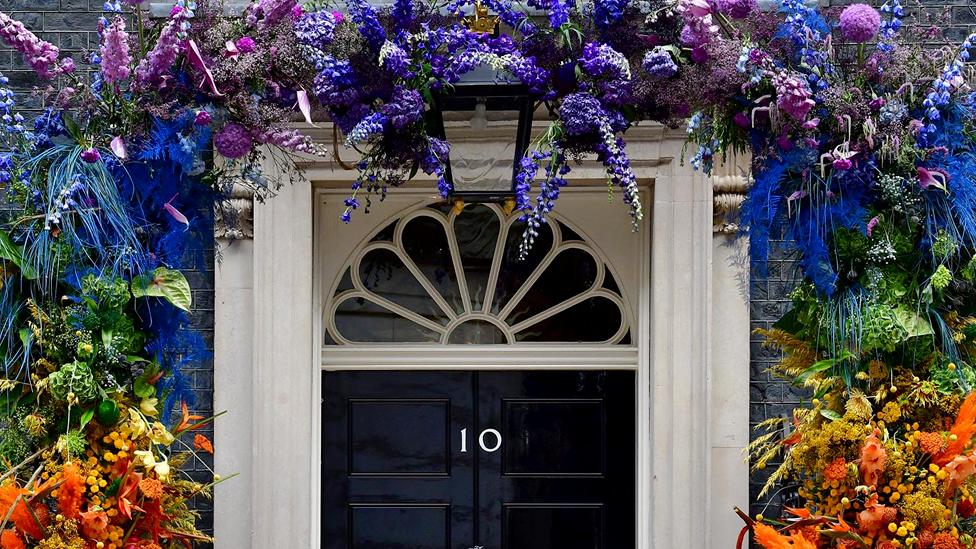Tory leadership: Boris Johnson wants say in spending post-Brexit aid cash
- Published
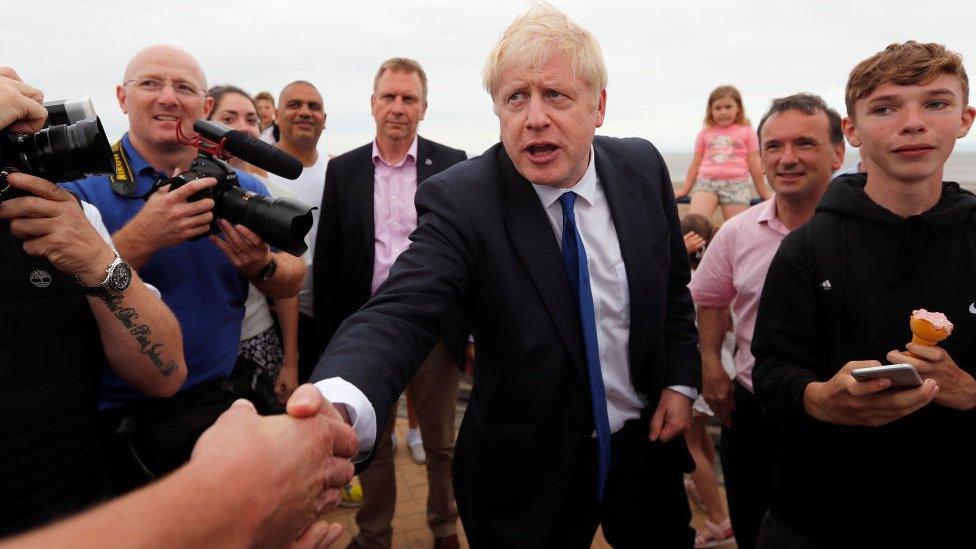
Boris Johnson visited Barry ahead of the hustings in Cardiff
There should be a "strong Conservative influence" over how cash replacing EU aid is spent, Boris Johnson has told a Tory leadership hustings in Cardiff.
The contest's frontrunner said he would match the cash Wales gets from EU funds - but suggested ministers in London should have a say in how it was used.
EU economic aid is currently administered by the Welsh Government in Cardiff.
Under EU structural funds Wales would have received more than £5bn by 2020.
Mr Johnson's rival, Jeremy Hunt, told the event at the All Nations Centre he would ensure that "Wales will not lose out" on the replacement to the funds.
Meanwhile Mr Johnson said the Welsh Government's decision to cancel the M4 Relief Road needed to be "reversed".
The leadership candidates took it in turns to take questions from party members at the event, held on Saturday night.
The UK government has promised a Shared Prosperity Fund as a replacement for EU structural funds, but has been criticised for delays in revealing how the scheme would work.
Tory AM Nick Ramsay has said the replacement of EU cash should not lead to a rowing back of devolution, echoing concerns raised by Welsh Labour ministers.
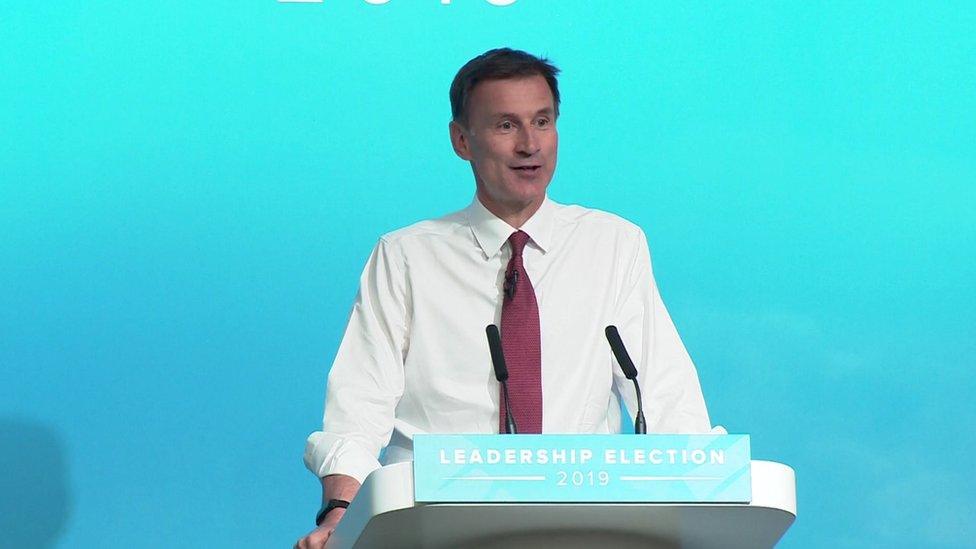
Jeremy Hunt said he would make sure "Wales does not lose out" on the replacement to EU funds
Mr Johnson said he would match Welsh EU cash. "There will be the full allocation of funds for Wales," he said.
"I think there may be some question about how exactly that money is dispensed, or by whom," he added.
"I would want to make sure that there was a strong Conservative influence on the expenditure of that £350m [per year], or whatever the sum is, to ensure that it delivered taxpayer value."
Mr Hunt, asked what he would do, said: "Of course we're going to make sure that all parts of the United Kingdom benefit from those additional funds.
"It may be that one pot of money is less but another pot of money will be better.
"We will make sure, and I will make sure as prime minister, that Wales does not lose out."

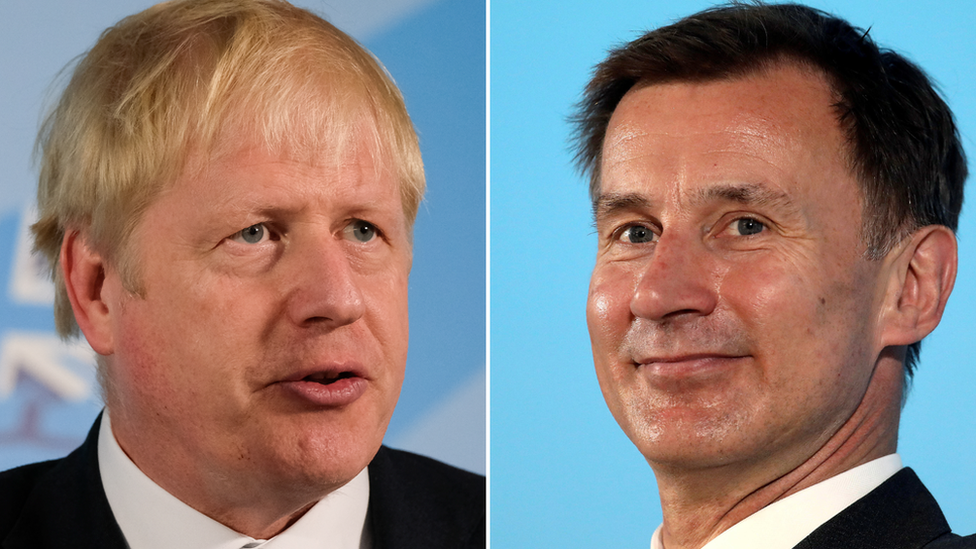
Analysis by Daniel Davies, BBC Wales political correspondent
Boris Johnson showed us what supporters and detractors see in him.
From the reception he got, it's obvious he connects with party members and can make Brexit supporters feel good about themselves.
But there was a slip-up where he called Chris Davies, battling to regain his seat as a Tory MP in the Brecon and Radnorshire by-election, Paul.
That's why Jeremy Hunt's supporters say, of the two candidates, their man is the one who sweats the details.

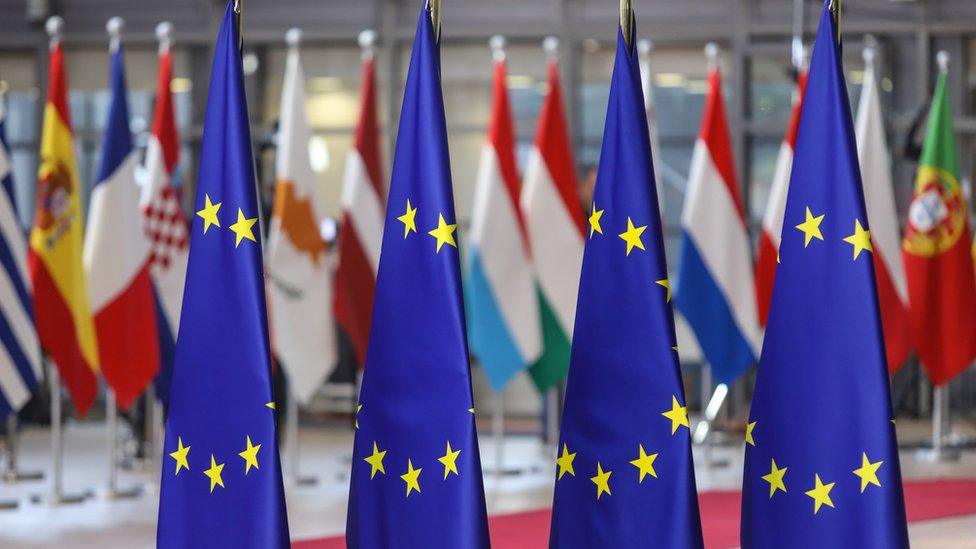
Wales will have received more than £5bn in structural funds by 2020, under EU spending plans
Jeremy Hunt told the hustings that he will "completely" trust the result of the leadership election, after it emerged some members have received more than one ballot.
"I completely trust our Conservative Party members," he said.
In his opening speech, Mr Johnson attacked the cancellation of the M4 Relief Road project.
"We need to reverse the chaotic decision of the Welsh Labour Government," he said.
Mr Johnson said the Welsh Government had "squandered £114m on a study" - referring to the amount spent on the project up to the point it was cancelled.
When asked later what he would do about the scheme, he said he would urge Wales' First Minister Mark Drakeford to "reconsider".
'Constantly chopping and changing'
Mr Hunt said it was "disappointing" that rail electrification, which is stopping at Cardiff, was not going all the way to Swansea.
He said he was "pro-infrastructure projects here in Wales".
"I think that we need to be thinking, not just about the next five years, but about the next 25 years when we do these projects," he said.
The foreign secretary said he was "against constantly chopping and changing what the constitutional settlement is" on devolution.
He said "constitutional stability" was needed in the UK.
- Published18 July 2019
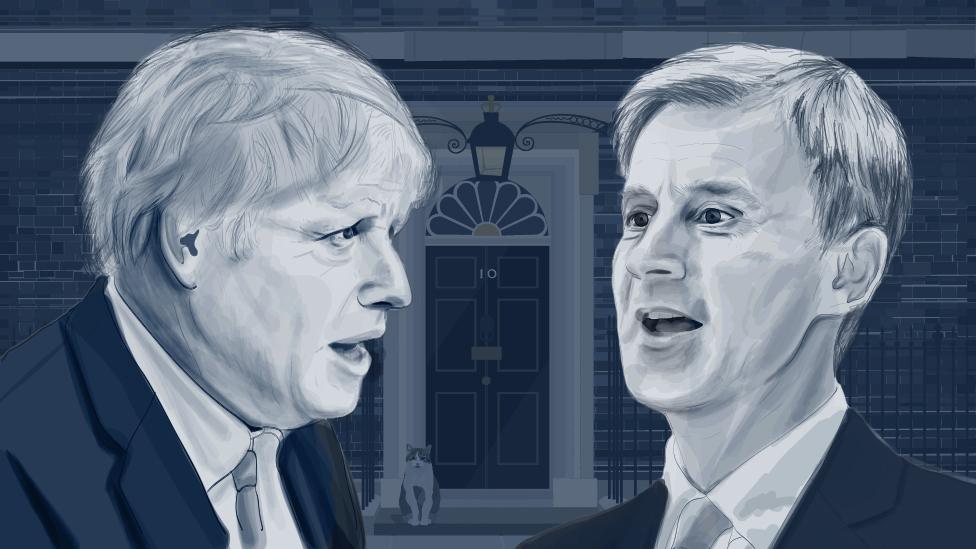
- Published23 June 2019
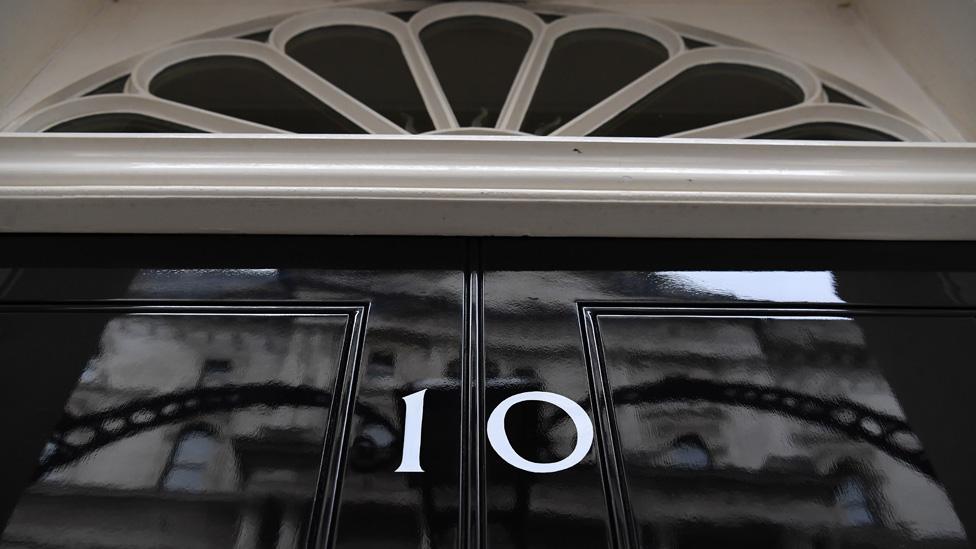
- Published5 July 2019
